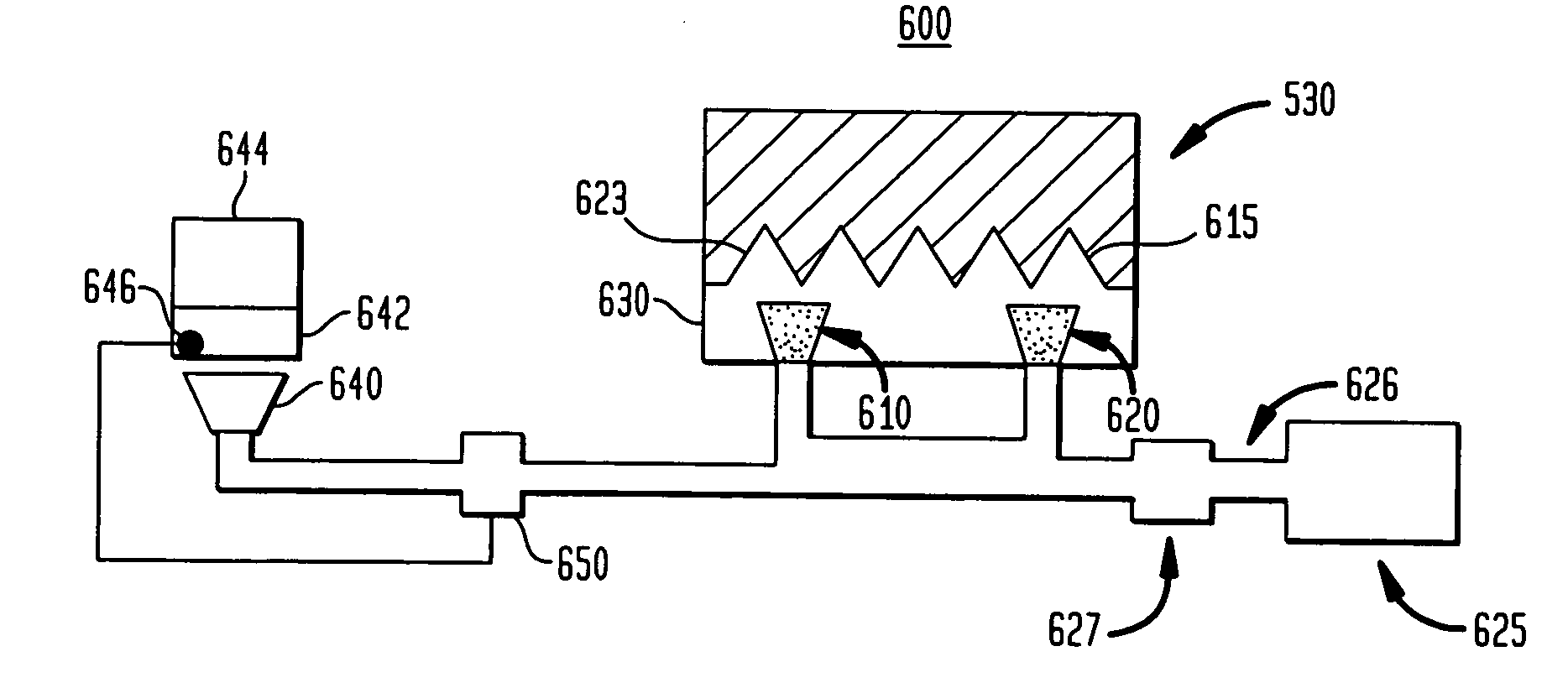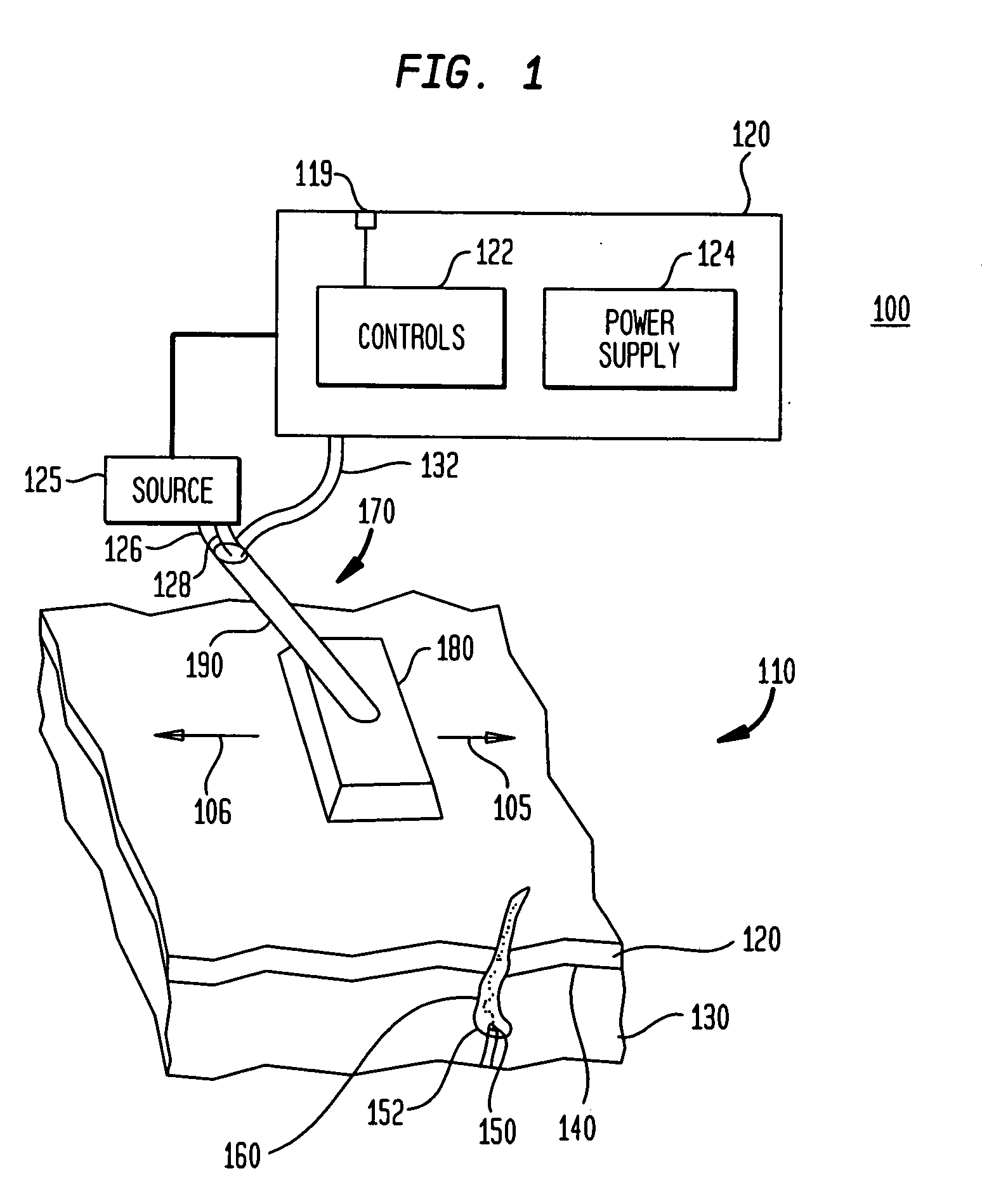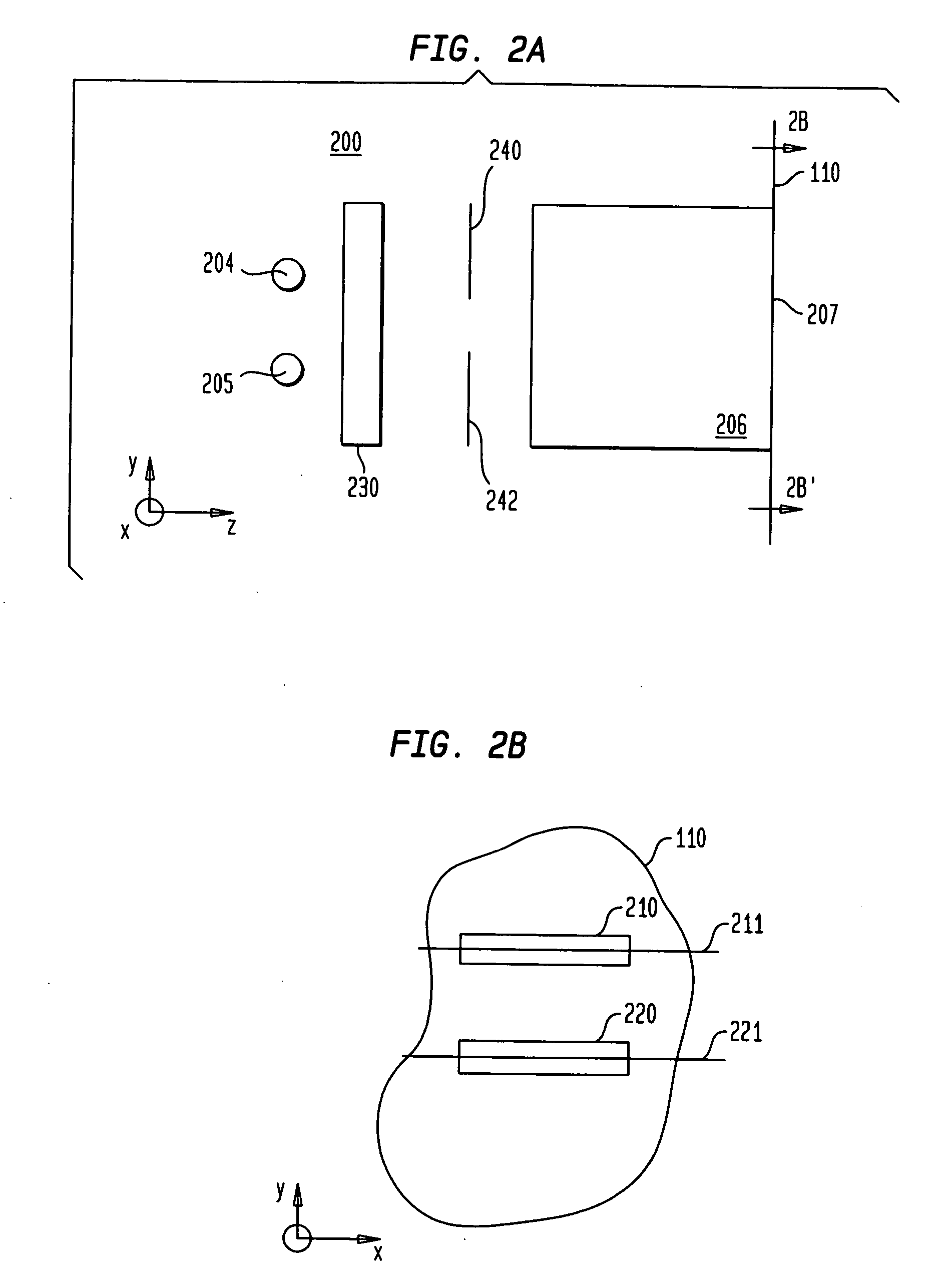Cooling system for a photocosmetic device
a photocosmetic device and cooling system technology, applied in the field of photocosmetic devices, can solve the problems of significant pain and/or infection risk, destructive heating of target structures located in the epidermis/dermis of a patient's skin, and the limitations of the current available photocosmetic devices
- Summary
- Abstract
- Description
- Claims
- Application Information
AI Technical Summary
Problems solved by technology
Method used
Image
Examples
Embodiment Construction
[0065]FIG. 1 is a schematic illustration of some basic elements of a photocosmetic device 100 according to some aspects of the present invention. Area 110 is an area of a patient's skin on which a selected photocosmetic treatment is to be performed. Area of skin 110 has a basal layer 140 in between an epidermal layer 120 and a dermal layer 130. Typically, photocosmetic treatments involve treating a target area located within epidermal layer 120 or dermal layer 130. For example, in the case of hair removal, it may be desirable to heat a bulb 150 of a hair follicle 160. Alternatively, only a portion of bulb 150 may be heated, for example, the basement membrane 152 between the papilla and the follicle.
[0066] In some embodiments of the present invention, the major sub-systems of device 100 include a handpiece 170, a base unit 120 and cord 126 to couple handpiece 170 to base unit 120. Base unit 120 may include a power supply 124 to power control electronics 122 and electromagnetic radia...
PUM
 Login to View More
Login to View More Abstract
Description
Claims
Application Information
 Login to View More
Login to View More - R&D
- Intellectual Property
- Life Sciences
- Materials
- Tech Scout
- Unparalleled Data Quality
- Higher Quality Content
- 60% Fewer Hallucinations
Browse by: Latest US Patents, China's latest patents, Technical Efficacy Thesaurus, Application Domain, Technology Topic, Popular Technical Reports.
© 2025 PatSnap. All rights reserved.Legal|Privacy policy|Modern Slavery Act Transparency Statement|Sitemap|About US| Contact US: help@patsnap.com



